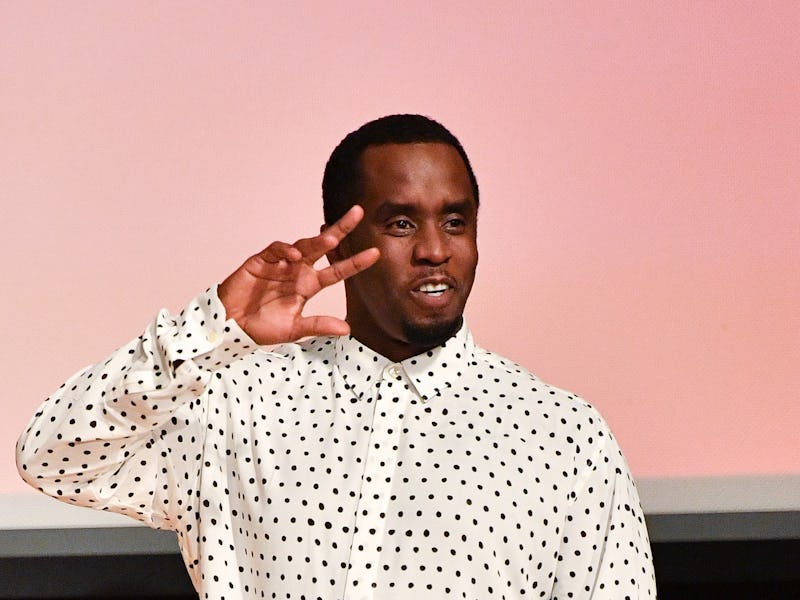P Diddy Is Now Brother Love: How the Brain Adjusts to a Name Change

The artist formerly known as Puff Daddy, P Diddy, Puffy, and Diddy is changing his name, once again — this time to Brother Love. In a heartfelt video tweet celebrating his birthday on Saturday, he cited a shift in personal identity as the reason for his sudden rebrand.
“I’m just not who I am before, I’m something different. So my new name is Love aka Brother Love. I will not be answering to Puffy, Diddy, Puff Daddy — any of my other monikers but Love or Brother Love,” he said. His reasoning suggests that the rap mogul has learned quite a bit about the psychology of name changes over his many-monikered career.
If Love expects to be treated differently as a result of his new name, he’s in luck. Over many years of research, scientists investigating the link between names and human characteristics have discovered that some traits can indeed be affected by a name. While isn’t clear that a name has any psychological effect on the bearer, it does seem to be true that a name can influence how other people view that person.
In other words, while it might be a stretch to say that because Brother Love is now apparently warm and fuzzy his new name will perpetuate those traits, it is fair to say that the way the public perceives him will change as he becomes better known by his new name.
Exactly how those perceptions shift has everything to do with the names themselves — and can be quite damning, if you don’t have the “right” name for the situation. Much of the recent research has focused on the effects of names that signal race, as in one American Economic Review study from 2004 showing that people with “white”-sounding names, like ‘Emily Walsh’ or ‘Greg Baker’, were more likely to get interviewed for a new job than people with “black”-sounding names like ‘Lakisha Washington’ or ‘Jamal Jones’, even if they were better-qualified for the job. The same effect was seen in a Swedish study that showed that people with Swedish-sounding or ‘neutral’-sounding names earned approximately 26 percent more than people with immigrant names.
Obviously, Brother Love doesn’t exactly have a hard time earning a huge paycheck, so the financial implications of his choice — the common use of the term ‘brother’ has its roots in black churches — probably didn’t have anything to do with his decision. But there is plenty to be said for the psychological benefits of having a unique name, especially if it invokes a sense of pride in your culture.
Some psychologists suggest that people with unique names are treated differently and thus learn to think of themselves as different, leading to more creative thought and behavior. People with these names also have a special advantage in the digital age, as they are more likely to turn up unique results in online searches.
On the flip side, unusual names also leave plenty of room for teasing and ostracizing — part of the reason why Denmark has its citizens choose their children’s names from a pre-approved list. In May, Quartz writer Sarah Todd wrote about the effects of having a very common name, noting that names like hers are somewhat of a “blank slate” because there are too many stereotypes — Sarah Silverman, Sarah Palin, Sarah Michelle Gellar — to “conjure up a firm association.”
Brother Love is at once exceedingly uncommon but made up of incredibly common words, so it’s not clear whether it’ll have the same history-clearing effect. It might at least make him seem more accessible and more likable than his previous incarnations, though. As Adam Alter wrote on names in the New Yorker in 2013, “People generally prefer not to think more than necessary, and they tend to prefer objects, people, products, and words that are simple to pronounce and understand.” Compared to the nonsensical “P Diddy,” Brother Love is a no-brainer.
Sometimes new names and the new identities associated with them don’t work out, forcing people to backtrack. The former Cincinnatti Bengals wide receiver Chad Johnson legally changed his name to Chad Ochocinco in 2008 and, after a series of serious personal issues including an arrest, changed it back to Chad Johnson in an attempt to “reconnect with [his] former self”.
Of course, if there’s anyone on the planet who doesn’t need to be lectured on the risks of changing a name repeatedly, it’s Brother Love. “I’ve been praying on this and I decided — I know it’s risky because it could come off as corny to some people — I decided to change my name again,” he said in his video. He might want to prepare to change it again soon: Wrestling personality and podcast host Bruce Prichard of the The Brother Love Show appears to share his new name — but not the sentiment behind it.